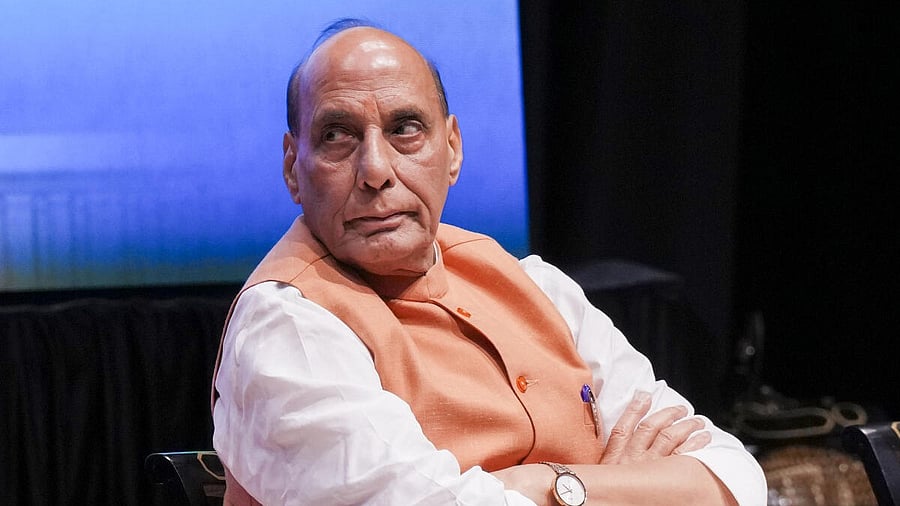
Rajnath Singh
Credit: PTI File Photo
New Delhi: Defence Minister Rajnath Singh on Thursday refused to sign the joint communique of the Shanghai Cooperation Organsation’s defence ministers meeting as the document neither mentioned the dastardly Pahalgam terrorist attack nor took into account India’s concerns on terror strikes emanating from Pakistan.
Because of India’s refusal, the SCO, which follows the principle of consensus, could not issue a joint statement after the two-day meeting at Qingdao, sending a strong message to Pakistan and its all weather ally China, who are understood to be the main players behind making such a draft.
“The Defence Minister participated in the defence ministers' meeting of the SCO. They could not adopt a joint statement. Certain member countries could not reach consensus on certain issues, and hence, the document could not be finalised,” Randhir Jaiswal, the spokesperson from the Ministry of External Affairs said here.
“India wanted concerns and terrorism reflected in the document, which was not acceptable to one particular country,” he added.
Sources said India was not satisfied with the language of the joint declaration as there was no mention of the terrorist attack in Pahalgam, but a reference was made to an incident that happened in Pakistan (hijacking of Jaffar Express).
Rajnath, who arrived in Chinese port city on Wednesday for the meeting, laid down the contours of India's "transitional shift" in its policy against terrorism and urged the SCO member nations to unite in combating and shun "double standards".
“Peace and prosperity cannot co-exist with terrorism and proliferation of Weapons of Mass Destruction in the hands of non-state actors and terror groups. Dealing with these challenges requires decisive action. It is imperative that those who sponsor, nurture and utilise terrorism for their narrow and selfish ends must bear the consequences,” he said.
“Some countries use cross-border terrorism as an instrument of policy and provide shelter to terrorists. There should be no place for such double standards. SCO should not hesitate to criticise such nations,” Rajnath added.
Besides India, the SCO membership includes Kazakhstan, China, Kyrgyzstan, Pakistan, Russia, Tajikistan, Uzbekistan, Iran and Belarus. China is currently the Chair of the SCO.
Rajnath said India launched Operation Sindoor in response to the heinous terror attack in Pahalgam, exercising its right to defend against terrorism and pre-empt as well as deter further cross border attacks.
“During the Pahalgam terror attack, victims were shot after they were profiled on religious identity. The Resistance Front, a proxy of UN-designated terror group Lashkar-e-Taiba claimed responsibility for the attack,” he said in his address to the SCO ministers including his Pakistani counterpart Khawaja Asif and Chinese Defence Minister Dong Jun who were in attendance.
“The pattern of Pahalgam attack matches with LeT’s previous terror attacks in India. India’s zero tolerance for terrorism was demonstrated through its actions. It includes our right to defend ourselves against terrorism. We have shown that epicentres of terrorism are no longer safe and we will not hesitate to target them,” he said.
The minister underscored the importance of countering the technology used by terrorists including drones for cross-border smuggling of weapons and drugs, pointing out that traditional borders are no longer the sole barriers against such threats in an interconnected world.
“The world faces an intricate web of challenges that range from transnational terrorism and cyber-attacks to hybrid warfare. Such threats don't respect national boundaries, and demand a unified response rooted in transparency, mutual trust, and collaboration,” he added.
